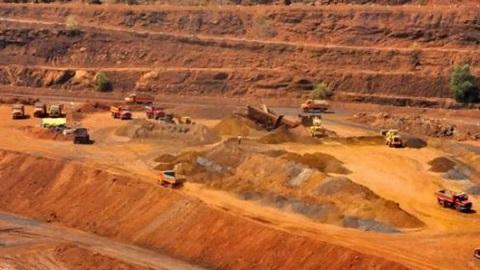
Andhra Pradesh is a state in India that is rich in natural resources such as minerals, forests, water and land. However, these resources are being exploited by various vested interests, without any regard for the environmental and social consequences. Here, The Better Andhra examines some of the major issues related to natural resources exploitation in Andhra Pradesh and suggests some possible solutions.
Going by the latest alarm raised by the Telugu Desam about the illegal sand mining. On the banks of river Godavari, it is clear that the free sand policy. That hopes to regulate sand availability in the state has again gone into the hands of a sand cartel, supported allegedly by Chief Minister Y.S. Jaganmohan Reddy.
One of the main issues is illegal mining of minerals such as sand, coal, iron ore, bauxite and limestone. According to a report by the Comptroller and Auditor General of India (CAG), Andhra Pradesh lost Rs. 16,000 crore due to illegal mining between 2004 and 2009. And, even after bifurcation, the permits for mining have gone up, giving easy means for exploitation in both Telugu states.
Illegal mining not only deprives the state. Of revenue, but also causes environmental damage such as deforestation, soil erosion, water pollution and loss of biodiversity. Moreover, illegal mining often involves human rights violations such as child labour, bonded labour and displacement of tribal communities.
Another issue is the overexploitation of groundwater resources for irrigation and industrial purposes. According to a report by the Central Ground Water Board (CGWB), Andhra Pradesh has 23 out of 33 districts that are overexploited or critical in terms of groundwater availability. Overexploitation of groundwater leads to depletion of aquifers, lowering of water table, salinization of soil and water, and increased vulnerability to droughts and floods. Furthermore, overexploitation of groundwater affects the quality and quantity of surface water sources such as rivers and lakes.
A third issue is the encroachment and degradation of forest land for agricultural and developmental activities. According to a report by the Forest Survey of India (FSI), Andhra Pradesh has 22.85% of its geographical area under forest cover, which is below the national average of 24.56%. However, this forest cover is under threat from various factors such as illegal logging, forest fires, grazing, mining, road construction and urbanization. Encroachment and degradation of forest land not only reduces the carbon sink potential of forests, but also affects the livelihoods and culture of forest-dependent communities such as tribals and forest dwellers.
Another major issue that seems unseen but is happening at a rapid pace is depletion of coastline. With YSRCP government already minting the Rushikonda Hill and mining it, the coastline in the state is also being gobbled up by land mafia. The Krishna & Godavari deltas rich in flora & fauna are under threat due to rapid urbanisation and pressure. This has resulted in destruction of villages such as Uppada on the Godavari belt along with slow disappearance of mangrove forests and fragmentation of shoreline.
These issues indicate that there is a need for a more sustainable. And equitable management of natural resources in Andhra Pradesh.
Some possible solutions are:
– Strengthening the enforcement of laws and regulations related to natural resources exploitation and imposing strict penalties for violators.
– Promoting participatory and community-based management of natural resources involving local stakeholders such as panchayats, NGOs, self-help groups and cooperatives.
– Adopting eco-friendly and efficient technologies. For extraction, processing and utilization of natural resources such as renewable energy sources, drip irrigation and waste management.
– Enhancing awareness and education among the public and policymakers about the importance and value of natural resources and their conservation.
– Developing alternative livelihoods and income sources for people dependent on natural resources such as ecotourism, agroforestry and handicrafts.
– GPS tracking of mining and permits to be checked stringently with fixed limits per day.
By implementing these solutions, Andhra Pradesh. Can achieve a balance between economic development and environmental protection, and ensure the well-being of its present and future generations.
But the moot question is, if governments themselves are sponsoring. People who are into illegal exploitation of natural resources and creating ecological imbalance, where will people turn to?







